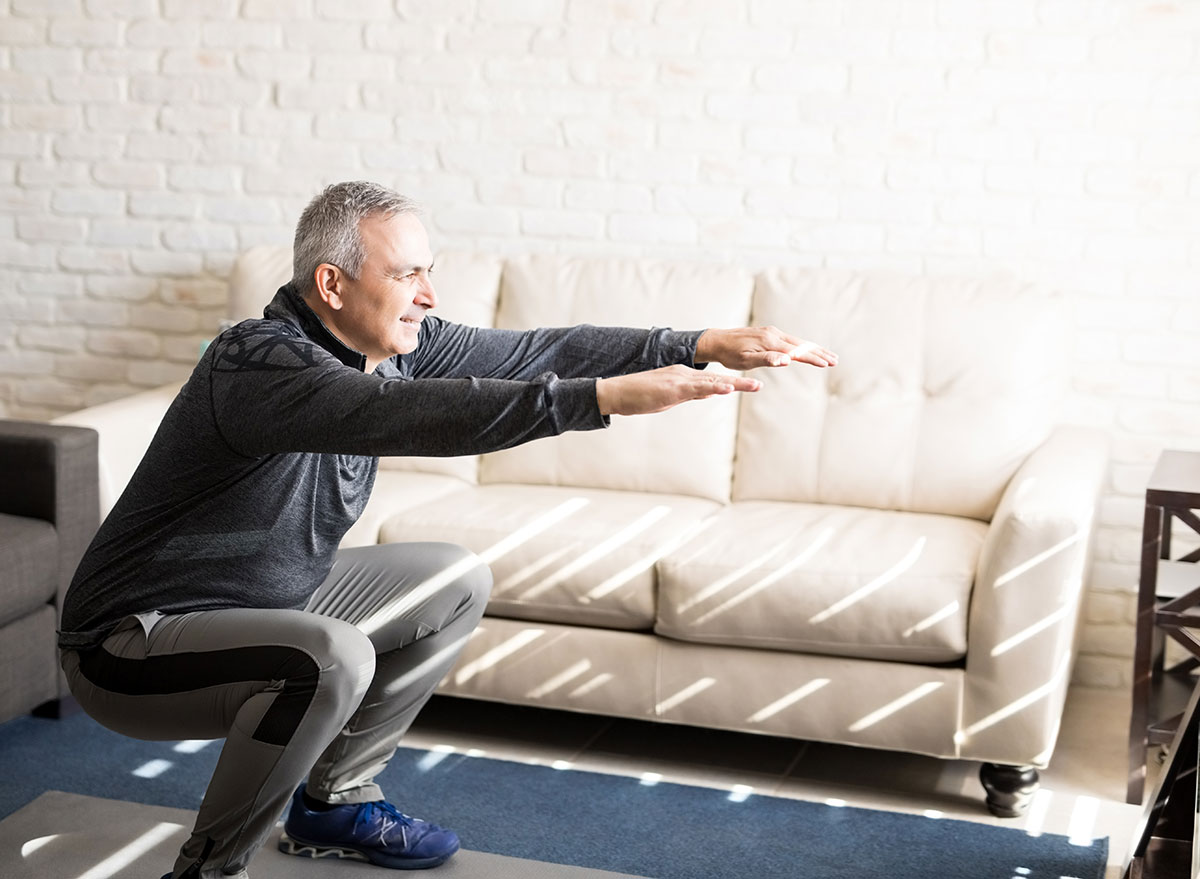This Is the Perfect Time to Exercise Every Day, Says New Study

Most doctors or trainers will tell you that the best time of day to exercise is the time in which you’ll actually go through with it. After all, any exercise is better than no exercise at all, and not everyone with a busy schedule has the luxury to hit the gym whenever they’d like. But if you’re a man—and especially an out-of-shape one who may suffer from type-2 diabetes—a new study has shed light on the time of day that’s best for you to exercise if you’re looking to maximize your body’s inherent physiological response and develop a healthier metabolism.
According to the study, published in December in the journal Physiological Reports, “exercise training in the afternoon leads to more pronounced metabolic adaptations compared to training in the morning in people who are metabolically compromised or have type-2 diabetes.” What’s more, the researchers conclude, “afternoon exercise triggered more profound benefits on improving exercise capacity and decreasing body fat content.”
The study was conducted by scientists at the Maastricht University Medical Center in the Netherlands, who sought to establish a connection between exercise and diabetes, as well as the timing of that exercise. Ultimately, after comparing the effects of exercise on men who worked out in the morning (8 am to 10 am) to the afternoon (3 pm to 6 pm), the researchers concluded that the PM exercise had a greater effect.
Though the researchers note that they can’t say why this is the case, the study’s lead author has at least one theory. He told The New York Times that afternoon exercise helped the participants “faster metabolize [their] last meals” before the evening, which led to a cascading effect on their sleep and their overall health.
Whatever the reason, the conclusion dovetails with what many leading chronobiologists who have examined the connection between exercise and the body’s 24-hour clock—or your circadian rhythm, which influences countless of your physiological processes, from your sleep to your hormones to your metabolism—have long known to be the case.
Charles A. Czeisler, Ph.D., M.D., the head of the Division of Sleep Medicine at the Brigham and Women’s Hospital at Harvard Medical School, once explained to me that “there is a circadian rhythm to athletic performance.” According to Czeisler, who moonlights as a sleep doctor to many professional sports teams (the Boston Celtics call him “Doctor Z”)—and who used to help Mick Jagger of the Rolling Stones maintain a strict schedule while traveling across time zones during the band’s world tours—the body’s window for peak performance (when things like focus, strength, flexibility, and reaction time are all enhanced) occurs in the late afternoon or early evening.
“This is when the body is sending out its strongest drive for wakefulness,” he said. (Conversely, your body sends out its strongest drive for sleep in the hours right before you wake up—which explains why many people who have a sleepless night still manage to get in a few minutes of sleep right before their alarm clocks go off.)
To illustrate his point, he observed that most Olympic records are established when the events are held during the late afternoon or evening hours. Czeisler believes that the body’s maximum performance rises to life during these hours because of human evolution. “We get that surge of energy right before dusk, and we evolved to have that surge,” he told me. The primary reason is so that early humans could be fully energized at the end of the day to scavenge for food, build fire, and prepare for the evening.
According to the latest science, this isn’t just the best time to set up camp and win a gold medal. It’s also the best time to rev your metabolism and lose weight. And if you’re in the market for a great workout to try during the afternoon hours, know that This One Workout Drives 29 Percent More Fat Loss, Says New Study.